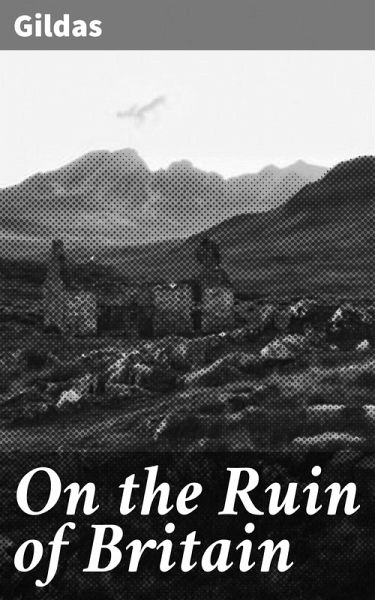
On the Ruin of Britain (eBook, ePUB)
Enriched edition. A Jeremiad of Decline and Decay: Insights from Gildas' Doom-laden Critique
Kommentar: Brackley, Kara / Redaktion: Good Press / Übersetzer: Giles, J. A.
Versandkostenfrei!
Sofort per Download lieferbar
1,99 €
inkl. MwSt.
Weitere Ausgaben:

PAYBACK Punkte
0 °P sammeln!
Gildas's "On the Ruin of Britain" is a profound historical treatise that illuminates the socio-political decay faced by post-Roman Britain in the 6th century. Written in a strikingly moralistic and contemplative tone, Gildas's work reflects on the spiritual and temporal failings of the Britons, intertwining his personal anecdotes with broader historical analysis. He employs vivid rhetoric and passionate appeals, engaging readers through invectives against the ruling classes while documenting the incursion of the Saxons and the disintegration of the once-strong Roman order. This work serves not...
Gildas's "On the Ruin of Britain" is a profound historical treatise that illuminates the socio-political decay faced by post-Roman Britain in the 6th century. Written in a strikingly moralistic and contemplative tone, Gildas's work reflects on the spiritual and temporal failings of the Britons, intertwining his personal anecdotes with broader historical analysis. He employs vivid rhetoric and passionate appeals, engaging readers through invectives against the ruling classes while documenting the incursion of the Saxons and the disintegration of the once-strong Roman order. This work serves not only as a lamentation but also as a call to repentance, resonating with the themes of divine retribution and moral urgency prevalent in early Christian literature. Gildas, a cleric operating in a tumultuous period marked by the decline of Roman authority and the rise of barbarian factions, draws on his experiences as an observer and critic of his contemporaries. His context as a religious figure underscores his intentions to invoke moral consciousness among his audience. The unique blend of personal narrative and historical chronicling makes Gildas a pivotal figure in early medieval literature, providing invaluable insights into the transitional dynamics of Britain during this era. "On the Ruin of Britain" is essential for anyone seeking to understand the historical foundations of medieval Britain or the early Christian philosophical discourse. Gildas's compelling arguments and evocative language encourage readers not only to reflect on historical wrongs but to consider the moral responsibilities that persist across generations. This book remains a salient reminder of the cyclical nature of history and ethics. In this enriched edition, we have carefully created added value for your reading experience: - A succinct Introduction situates the work's timeless appeal and themes. - The Synopsis outlines the central plot, highlighting key developments without spoiling critical twists. - A detailed Historical Context immerses you in the era's events and influences that shaped the writing. - A thorough Analysis dissects symbols, motifs, and character arcs to unearth underlying meanings. - Reflection questions prompt you to engage personally with the work's messages, connecting them to modern life. - Hand-picked Memorable Quotes shine a spotlight on moments of literary brilliance. - Interactive footnotes clarify unusual references, historical allusions, and archaic phrases for an effortless, more informed read.
Dieser Download kann aus rechtlichen Gründen nur mit Rechnungsadresse in A, B, BG, CY, CZ, D, DK, EW, E, FIN, F, GR, H, IRL, I, LT, L, LR, M, NL, PL, P, R, S, SLO, SK ausgeliefert werden.













